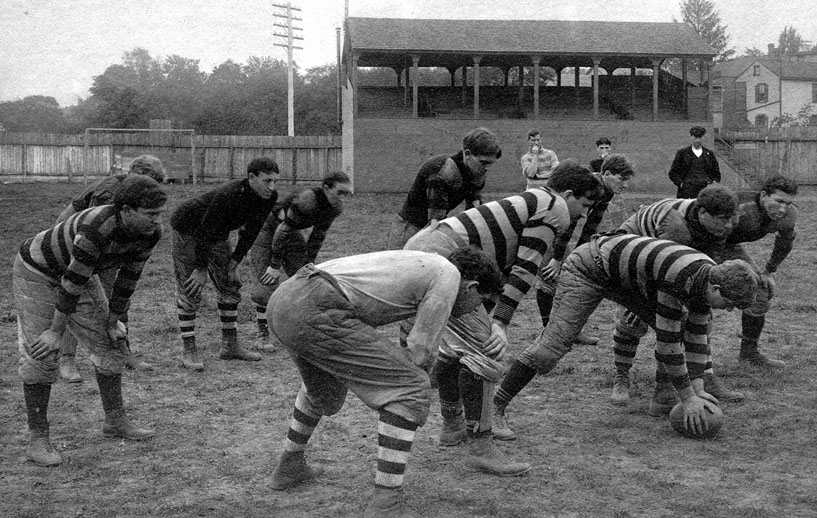Americans don’t pay much attention to social class. Most of us think of ourselves as middle class, especially the “self-made” with their considerable wealth, and we’ve proved relatively resistant to the class envy found in other societies. It’s different for those who remained part of the British Empire for a longer period of time than did American colonials, because they seem to have inherited that particularly English obsession with relative social standing.
Outsiders and the excluded are often close observers of the world around them—which helps explain why a long line of authors and film-makers from former British colonies so tellingly limn the English class system. Take, for example, Jamaica Kincaid or Philip Michael Ondaatje or Timothy Mo—recent post-colonial outsiders with sharp insights into English manners and prejudices.
Katherine Mansfield fits this outsider profile. Born in 1888 in Wellington, New Zealand into a proper, bourgeois family, Mansfield left her comfortable and conventional existence to move to England to write. Her life in Europe was, to use the euphemism of the time, unconventional: affairs with men and women; a first marriage that lasted only a few days; a stint as an opera extra; the shame of catching gonorrhea; a second (happier) marriage to editor John Middleton Murry (a one-time tenant in her flat); friendship with D.H. Lawrence and his wife Frieda; and death in January 1923 of a pulmonary hemorrhage, following a long bout with tuberculosis.
A story of memory
Mansfield wrote “The Garden Party” while being “treated” for TB at the mystic guru George Gurdjieff’s Institute for the Harmonious Development of Man in Fontainebleau; it is a story of memory, drawn from her privileged New Zealand childhood. Mansfield is direct and unflinching in her description of the prevailing class structure, one imported from England, yet it would be a mistake to see “The Garden Party” as exclusively about social class; for it is also about the coming-of-age of a sensitive girl, Laura Sheridan, the protagonist of the story.
As the story opens, Laura’s upper class family is holding a garden party. We watch the interaction between her family and the servants and other working people as they prepare for the party; we see how their world is carefully ordered (“The gardener had been up since dawn, mowing the lawns and sweeping them, until the grass and the dark flat rosettes where the daisy plants had been seemed to shine.”) When a group of workmen come to set up a marquee for the party, Laura finds herself drawn to them, although Mansfield has some fun with Laura’s youthful flightiness (“Oh, how extraordinarily nice workmen were, she thought. Why couldn’t she have workmen for her friends rather than the silly boys she danced with and who came to Sunday night supper? She would get on much better with men like these.”) We learn that Laura has no use for “stupid convention” or “absurd class distinctions,” or at least that is what she tells herself.
The story darkens when we learn that a young working man who lives nearby in a small cottage with his wife and five children has been killed in an accident (a tumble from a horse). Laura’s first impulse: the garden party must be canceled. Her sister, Jose, is astonished at the idea.
“Stop the garden-party? My dear Laura, don’t be so absurd. Of course we can’t do anything of the kind. Nobody expects us to. Don’t be so extravagant.”
“But we can’t possibly have a garden-party with a man dead just outside the front gate.”
When Jose makes a nasty remark about the dead man (“You won’t bring a drunken workman back to life by being sentimental”) Laura turns to her mother for support, but discovers she shares Jose’s world-view (“People like that don’t expect sacrifices from us. And it’s not very sympathetic to spoil everybody’s enjoyment as you’re doing now.”) The party goes on, and Laura “goes along to get along.”
Her mother then encourages Laura to visit the grieving family, bringing a basket of sandwiches left-over from the party. (Is her mother guilty? Or does she want to jolt Laura by exposing her to the non-romantic realities of the working class?) To Laura’s dismay, once at the cottage she is brought to see the body of the dead man. Yet her reaction to the body surprises her (and us):
…He was wonderful, beautiful. While they were laughing and while the band was playing, this marvel had come to the lane. Happy . . . happy . . . All is well, said that sleeping face. This is just as it should be. I am content.
Laura has found death to be quite different from what she expected. When her brother meets her outside the cottage and asks “Was it awful?”, Laura struggles to capture her feelings in words, unable to fully explain the epiphany that she has experienced. That is where Mansfield ends the story.
An inevitable beauty
A Marxist critique of “The Garden Party” would see Laura’s coming-of-age as an awakening to “the hypocrisy of bourgeois society” and “middle class ruthlessness” (in the words of critic Simon Korner). While it is true that Mansfield touches on class and how it unites and divides us, there’s much more going on in “The Garden Party” than a simple parable about the evils of class. What propels the story is Laura’s perceptions, her feelings, the mix of her emotions, and her newly-awakened understanding of some of the contradictions of life—more so than any political or ideological lesson (although Mansfield’s sharp portraits of Laura’s mother and sister suggests that she despises upper class snobbery).
There are clues to this in a 1922 letter about “The Garden Party” to novelist and playwright William Gerhardi (who later spelled his last name with an “e”—Gerhardie), Mansfield wrote that she was trying to convey “[t]he diversity of life and how we try to fit everything in. Death included.” She added:
That is bewildering for a person of Laura’s age. She feels things ought to happen differently. First one and then another. But life isn’t like that. We haven’t the ordering of it. Laura says, “But all these things must not happen at once.” And Life answers, “Why not? How are they divided from each other.” And they do all happen, it is inevitable. And it seems to me there is beauty in that inevitability.
What happens in “The Garden Party” is what happens in life. Confronted with tragedy, or injustice, we avert our eyes, or we do what we can (or some of us do), but life goes on. Cathedrals are built, bread baked, weddings celebrated, satellites launched, classes taught, legislatures convened and yes, fatuous summer garden parties are held. The ridiculous and the sublime, the comic and the tragic, are all mixed up together. Mansfield asks: how could it be otherwise?
Perhaps Mansfield was thinking about her own isolated and desperate situation at Gurdjieff’s “clinic” as she wrote “The Garden Party,” wondering whether there would there be any interruption in the garden parties of her literary friends when death came for her. There is an air of resignation about “The Garden Party,” a sense that the world will indeed spin on, and a desperately ill Mansfield may indeed have accepted the “beauty in that inevitability.”
Jefferson Flanders is author of the Cold War thriller Herald Square.
Copyright © 2007 Jefferson Flanders
All rights reserved




